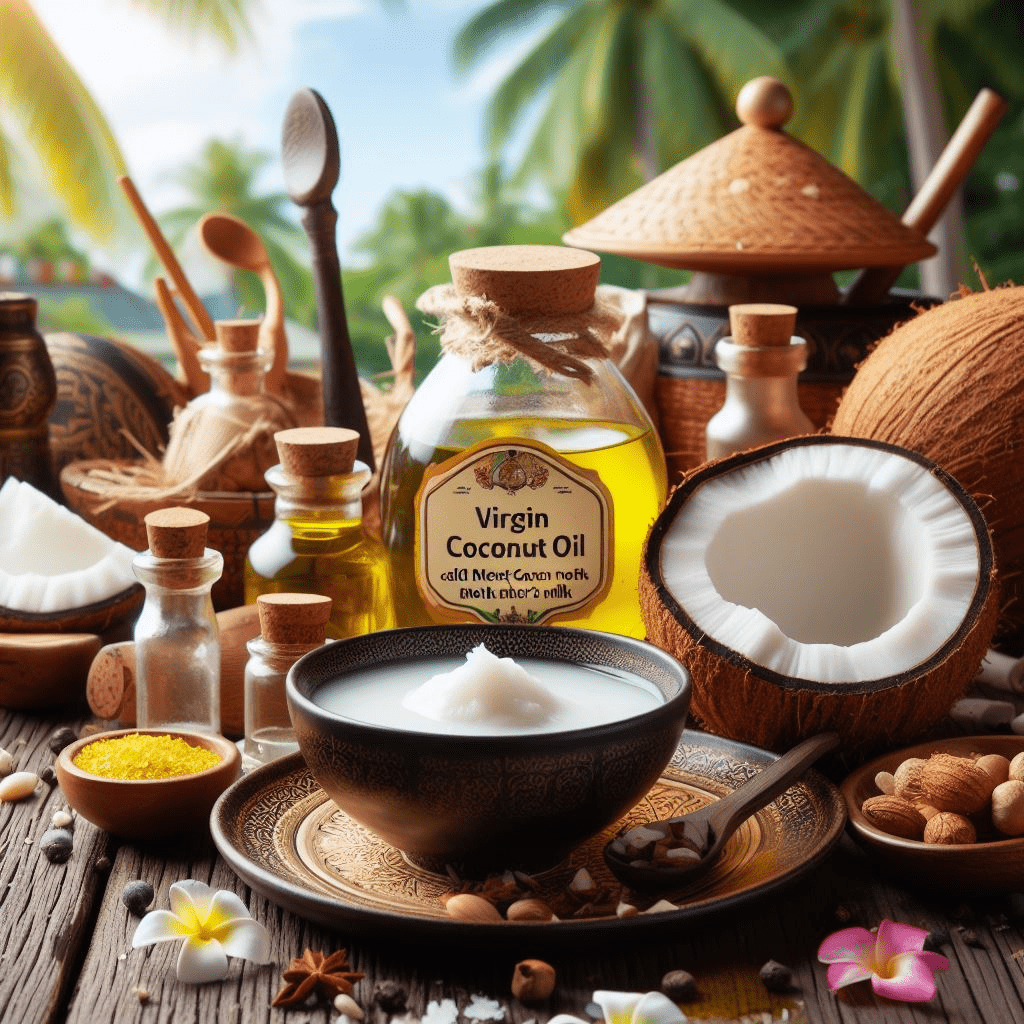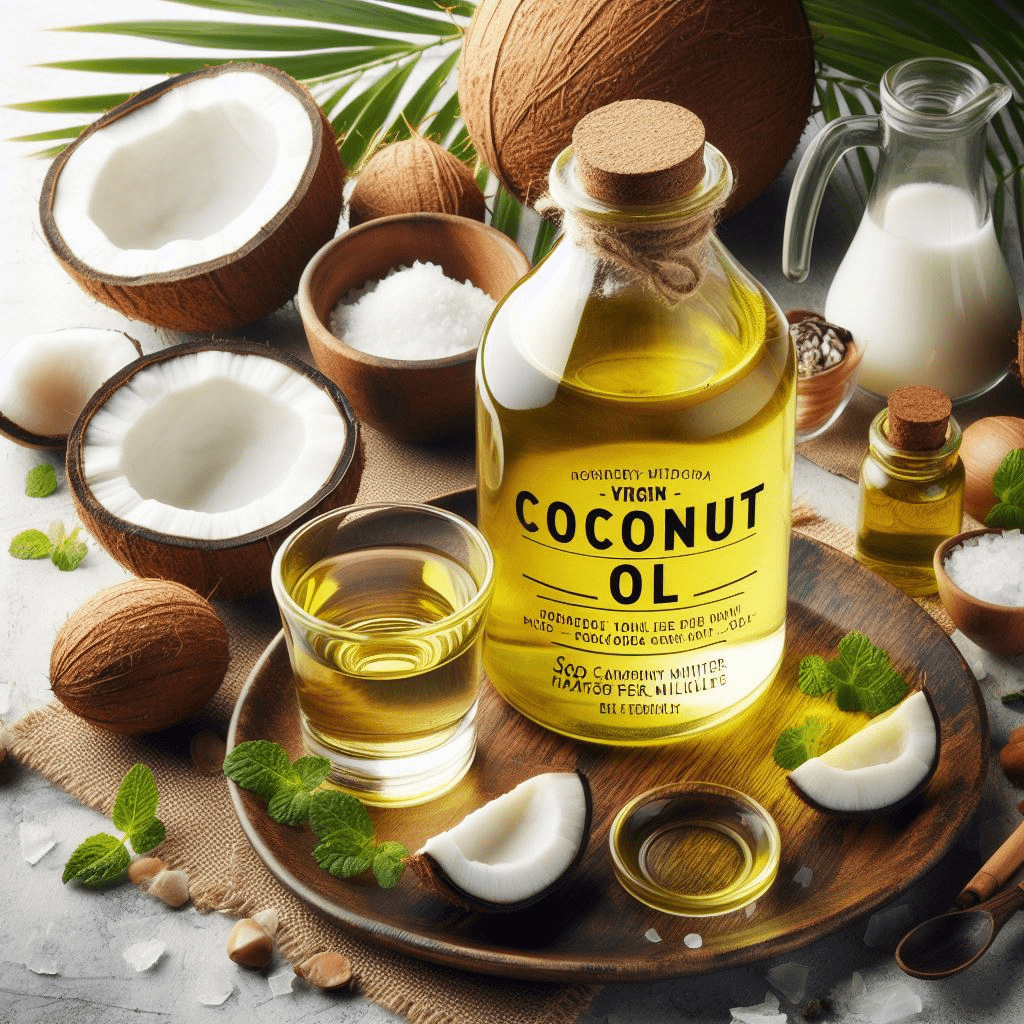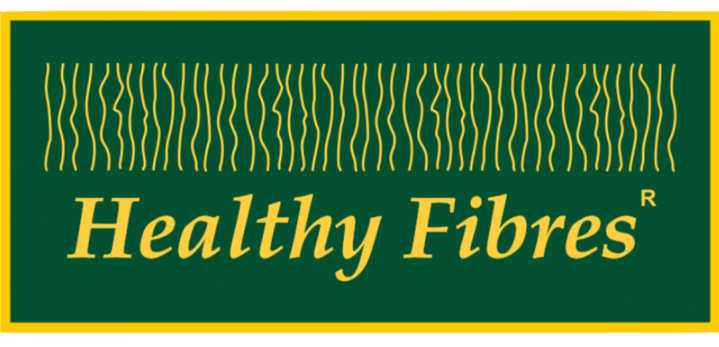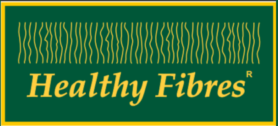Why is Virgin Coconut Oil often called “next to mother’s milk”?
Cold Pressed Oil
In a conventional oil extraction process, hard friction elevates the extracted oil’s temperature, altering its natural chemistry and diminishing medicinal value. The cold-pressed method regulates heat, ensuring it doesn’t exceed the surrounding air by more than five or six degrees Celsius. This helps preserve the natural and medicinal qualities, retaining all essential nutrients.

Using cold pressed coconut oil has health benefits
Enhances Metabolism: Packed with nutrients, it’s good for your health and diet. It is rich in the MCT (Medium Chain Triglyceride) fatty acids that the body requires, which may enhance cognitive performance and support a healthy metabolism that leads to optimal digestion.
The 49% lauric fatty acids in cold-pressed virgin coconut oil rapidly supply energy without undergoing conversion into fat.
Antifungal and Antimicrobial Properties: The MCT content of cold-pressed coconut oil, specifically lauric acid, gives it antifungal and antimicrobial properties. About 49% of the medium-chain fatty acids (MCTs) in organic cold-pressed coconut oil are lauric acid. It functions as a bacteriostatic agent, stopping the growth of dangerous bacteria.
MCTs in cold-pressed coconut oil assist individuals with Alzheimer’s and other memory impairments. Due to the inability of Alzheimer’s patients’ brains to produce insulin, ketones from coconut oil offer a crucial alternative energy source. The brain rapidly absorbs MCTs, effectively fueling brain cells and aiding in the restoration of cognitive function.
An excellent moisturizer for hair and skin
Because virgin coconut oil is rich in fatty acids, it is a great moisturizer for skin and hair. It hydrates, nourishes, and encourages a radiant, healthy complexion. Its natural qualities make it a versatile and efficient beauty treatment by sealing in moisture, strengthening hair, and soothing the skin.

Weight Loss : Because virgin coconut oil has a high medium-chain triglyceride (MCT) content, it helps with weight loss by acting as a quick energy source. These MCTs support fat burning, lower appetite, and speed up metabolism—all of which are important components of a successful weight loss plan.
Enhances Oral Health: Swallowing oil around the mouth helped shield it from harmful bacteria and periodontal disorders prior to the development of toothpaste. To preserve your mouth and its priceless contents, experts advise 20 minutes of daily coconut oil pulling three times a week.
In treating inflammation and arthritis, an Indian study published in International Immunopharmacology found that cold-pressed virgin coconut oil, with its high antioxidant content, outperformed popular medications in reducing inflammation and promoting arthritis healing.
Treats Osteoporosis: Osteoporosis is a disease of the aging bones that causes them to become brittle, weak, and less dense. Wood-pressed coconut oil contains antioxidants that help preserve bone structure and stop bone loss brought on by hormonal fluctuations.
PMC5745680—https://www.ncbi.nlm.nih.gov/pmc/articles/
Mother’s milk and coconut oil

Mother’s milk is the ideal food provided by nature, created by God to give an infant all the nutrients it needs in the first year of life.
Medium chain fatty acids (MCFA), including lauric acid, caprylic acid, and capric acid, contribute to the remarkable antimicrobial properties of coconut oil and mother’s milk. Among these, lauric acid stands out as the most potent.
The proportion of MCFAs in cold pressed coconut oil and lauric acid in mother’s milk is the same. The baby is shielded from disease, malnourishment, and illness by this lauric acid.
Lauric and capric acids are two of the essential fatty acids found in human breast milk fat, and they have strong antibacterial qualities. These fats provide the nursing infant with defense against bacteria, protozoa, and viruses, including heliocobater and chlamydia, as well as viruses like herpes and HIV.
Lactating mothers and and food choice
Lactating mothers who consume coconut oil and other organic cold-pressed coconut products have significantly higher levels of lauric and capric acid in their breast milk, according to a 1998 study published in the American Journal of Clinical Nutrition. As a result, the milk supply contains higher concentrations of the antimicrobials that are protective, which will further shield the nursing baby.
Women store fat in order to ensure a successful lactation. Whatever lauric and capric acid that is consumed goes into the fat reserves. These stores plus her current diet make up the lactating mother’s milk fat. In the event that she doesn’t consume any lauric acid, her milk fat will typically have 3% lauric acid and 1% capric acid.
Increasing lauric acid intake triples its presence in breast milk and doubles capric acid levels. In coconut oil staple nations, mother’s milk can reach 21% lauric acid and 6% capric acid, enhancing the child’s defense against bacteria, viruses, and protozoa.

